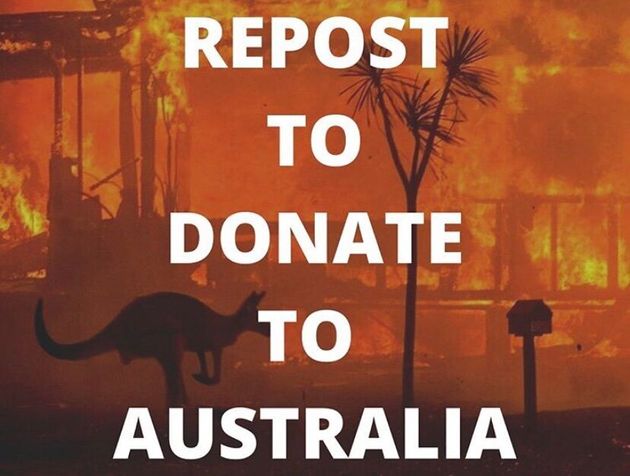Activism or slacktivism?

In the age of information, news can be spread on a faster scale than ever before. Tragedies such as acts of terrorism or natural disasters can turn into international news in minutes. Social media allows for everybody to speak their takes on the latest world issues. While social media can be meaningfully used to help with tragedies abroad, it can also be abused under the guise of activism.
Recently, the massive Australia fires have taken the internet by storm. Instagram stories are flooded with posts of sympathy, some promoting donations and some attempting to spread awareness. This phenomenon is not unique to the Australia fires. Other events, such as the Sudan revolts of April 2019, have encouraged rampant social media activism. While many of these posts seem well intentioned, there may be ulterior motivations for their spread.
Many of these posts follow a similar format. They often come from a brand new account, and encourage followers to repost something on their story, promising a donation to a cause in return. This seems like a very good way to raise money and awareness, but a closer examination of the accounts reveals something else. Interestingly enough, little to none of these accounts can be found on the official Directory of Nonprofits. (See for yourself at https://www.guidestar.org/NonprofitDirectory.aspx, this site is linked to the IRS database of tax-exempt organizations, and it is a good way to check if something is legitimate) For example, @australiadonation alleges to donate ten dollars to the australia fire for every follower, but they are not registered, nor do they post receipts of their donations.
Another notable example of this phenomenon became apparent in April 2019 during the revolts in Sudan. Reposts of “The Sudan Meal Project” flooded instagram for days, alleging that a meal would be donated to starving Sudanese. Once again, there is no proof of a “Sudan Meal Project” on the official Directory of Nonprofits, and the account that was supposedly in charge of the project no longer exists. This is suspicious at best, and proof of fraudulency at worst.
It is also noteworthy that many of these accounts are businesses. @plantatreeco is an account that enjoyed a brief bubble of activity from the Australia wildfires. While it did post a receipt of a significant donation (props to the company), it also has posts and a link to their merchandise. It seems that this account could have been motivated by profit rather than activism. Surely this account is not alone. It appears that this account in particular actually donated something, but there are likely many other business accounts that falsify their donations while benefiting from the buzz of a tragedy.
Raising awareness about current events is important, and social media allows anybody to do it. However, it is worth examining the legitimacy of some messages of “activism” that go viral. Many could be led to believe they are raising money for a cause, while in reality they are only expanding some business and detracting from genuine efforts. While the internet seems to be free of these questionable viral posts for now, just wait. The next international tragedy will almost certainly revive the trend.


